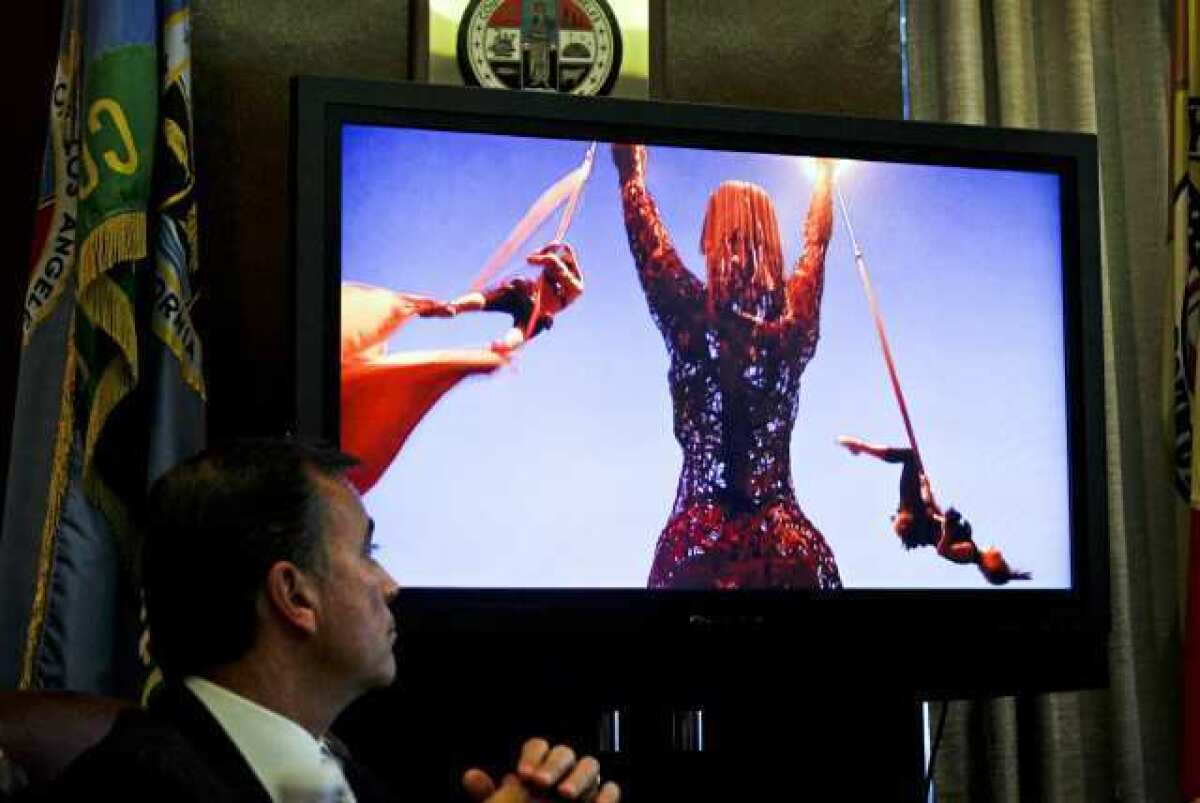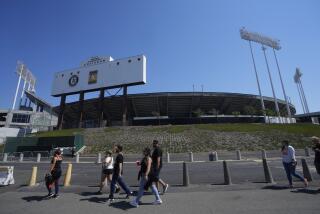L.A. Coliseum officials tell USC they can’t afford $60 million in renovations

For the first time, Los Angeles Memorial Coliseum Commission officials acknowledged Thursday that they would be unable to keep their promise to USC to make nearly $60 million in sorely needed renovations to the 88-year-old stadium.
The admission leaves the neighboring university with a number of options under its contract for playing Trojan football home games there.
USC could make renovations on its own instead of paying rent to the commission; it could leave; or it could ask to receive a master lease giving it day-to-day authority over the publicly owned Coliseum. That would have USC oversee repairs, maintenance, the booking of events and require it to pay rent to the commission or the state.
For its part, USC officials signaled that they want to work at staying at the Coliseum.
“USC remains committed to working with the Coliseum Commission to find a way to achieve the improvements needed for the Coliseum to become a first-class stadium once again,” said Kristina Raspe, USC’s associate senior vice president for real estate and asset management.
The commission’s financial plight is only the latest controversy to face the Coliseum and its nine-member joint state-city-county panel. Almost a year ago, a 15-year-old girl died after taking an overdose of Ecstasy at a Coliseum rave.
And in recent months, the Los Angeles Times has reported that a former commission manager, Todd DeStefano, received tens of thousands of dollars in private payments from companies that did business with the commission. DeStefano and the former general manager of the commission, Patrick Lynch, had their homes raided recently by investigators for Los Angeles County Dist. Atty. Steve Cooley.
The commission has also frequently been forced to grapple with a shaky budget. It is expected to have an operating loss of $302,000 for the fiscal year that ends June 30.
Particularly sobering was the disclosure Thursday that the commission essentially has no cash reserve. That account has eroded from a high of nearly $12 million in 2008 to $1.6 million now, records show.
Without the money USC provides in leasing the Coliseum for football games -- about $1.8 million a year -- the commission would fall into the red. “There is no reserve,” Commissioner Rick Caruso said at Thursday’s commission meeting. “We just have to be honest about it because we’re not going to be able to meet the obligations under our lease unless there is a substantial amount of revenue generated.”
Caruso, a developer and potential mayoral candidate, chairs the commission’s finance committee. “We have some heavy lifting to do and some big decisions to make,” he said.
The Coliseum looks and feels like an old stadium. The locker rooms are worn and damaged by water leaks; the plumbing is antiquated. The restrooms are too few and malfunction; aging concession services lack basics, such as cash registers and ice machines.
And more than 90,000 seats were due to be replaced at a cost of roughly $15 million this year, but the commission postponed that and instead chose to make a $6-million improvement to the video board.
In 2007, USC offered to invest $100 million in the Coliseum in exchange for the commission giving up day-to-day control of the venue. But the commission rejected the deal with the expectation that naming rights would provide a cash infusion to pay for the improvements and leave the current landlord structure in place.
For now, interim general manager John Sandbrook told commissioners that the Coliseum’s books look stable for at least the next 12 months.
With the commission in such a delicate state, there has been discussion about dramatically changing how the Coliseum and adjacent Los Angeles Memorial Sports Arena are managed. In May, commission President David Israel created a committee to determine if there was a better way to oversee management of the center.
Commissioners also on Thursday rejected a request by Go Ventures, a Los Angeles rave company, to return to the Sports Arena to hold its annual New Year’s Eve rave.
Times staff writer Sam Farmer contributed to this report.
More to Read
Sign up for Essential California
The most important California stories and recommendations in your inbox every morning.
You may occasionally receive promotional content from the Los Angeles Times.











